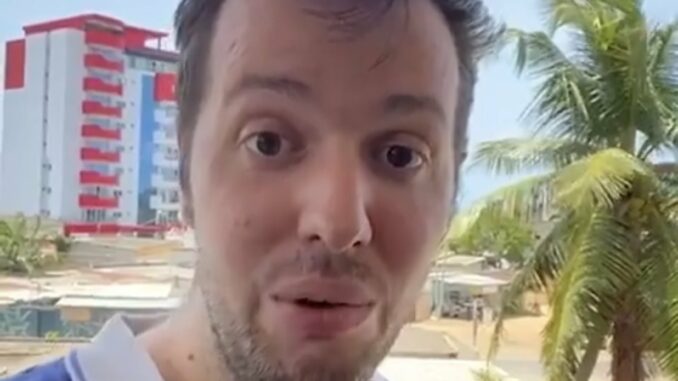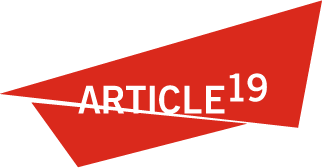
ARTICLE 19 expresses deep concern over recent actions taken by the Togolese authorities against the foreign press, just days before the legislative elections scheduled for 29 April. Togo’s media regulatory body, the High Authority for Audiovisual and Communication (HAAC), has suspended accreditation for foreign media, and prohibited France 24 and Radio France Internationale (RFI) from reporting on political activities, further exacerbating our concerns regarding freedom of information and media pluralism in Togo. Ahead of the elections, ARTICLE 19 urges the Togolese authorities to uphold their obligations to guarantee the right to freedom of expression, press freedom, and access to information.
We are particularly alarmed by recent incidents, notably the violent arrest of French journalist Thomas Dietrich, followed by his expulsion from the country. We urgently call on the Togolese authorities to respect international standards regarding press freedom and to ensure a safe and conducive environment for journalism, both for national and foreign media.
‘The arbitrary arrest of Thomas Dietrich and his expulsion are acts of repression and intimidation of the free press covering sensitive subjects in the political space,’ said Alfred Bulakali, Regional Director of ARTICLE 19 Senegal and West Africa.’ The suspension of accreditation for foreign media adds an alarming dimension to this assault on press freedom, illustrating a growing climate of censorship and restriction of independent information. In the midst of upcoming elections, it is imperative that journalists are allowed to report without fear of persecution or expulsion, ensuring transparency and accountability in the democratic process.’
In a video dated 14 April posted on X (formerly Twitter), journalist Thomas Dietrich expressed critical views regarding the government under Faure Gnassingbé, raising concerns about the government’s plans to introduce a new constitution and change the country’s system of governance. The Afrique XXI journalist posted his comments during his time in Lomé, where he was covering political activities and the ongoing electoral campaign . In his recording, he referred to obstacles he encountered with ‘Togolese authorities’, noting that they had begun questioning him more and more, despite the fact that he had presented all legal document as requested and explained the purpose of his visit.
Dietrich later approached the High Authority for Audiovisual and Communication (HAAC) to retrieve his accreditation. However, it was denied on the grounds that he should have applied for it at the same time he applied for his visa. He was subsequently apprehended by police and assaulted by them during his arrest, according to multiple sources.
HAAC issued a statement on 15 April announcing ‘the temporary suspension of accreditation issuance‘. This decision was made ‘considering the issues related to special envoy Thomas Dietrich’ and ‘serious shortcomings observed in the coverage of political news about Togo by RFI and France 24 in recent days,’ HAAC said, without specific mention of the contents in question.
It is imperative that journalists, both national and foreign, be able to work without fear of retaliation or intimidation, and that citizens have access to diverse and impartial information to make informed decisions during elections.
Background
Between 25 March and 26 March, ahead of the legislative and regional elections, Togolese parliamentarians overwhelmingly endorsed a new law transitioning Togo from a presidential to a parliamentary system of governance. The implication of this transition is the elimination of presidential elections, thereby depriving citizens of their fundamental right to vote. Additionally, the new constitution introduces the role of President of the Council of Ministers, endowed with complete authority and responsibility for governing affairs. This shift has faced widespread condemnation from the opposition, who characterise it as a ‘constitutional coup’.
The media landscape has encountered significant challenges, as highlighted above, and including HAAC’s suspension of the privately-run newspaper La Dépêche for three months in response to an article published on 28 February. The director of the newspaper was arrested on 28 March following the publication of an article regarding the death of a close associate of President Faure Gnassingbé, and later released on Tuesday, 19 April.
ARTICLE 19 urges the Togolese authorities to take all necessary measures to fulfil their obligations under the African Charter and other international and regional instruments guaranteeing the right to freedom of expression, freedom of the press, and access to information, and to apply the principles outlined in the Declaration of Principles on Freedom of Expression and Access to Information in Africa (the Declaration), particularly non-discrimination based on national or social origin.
